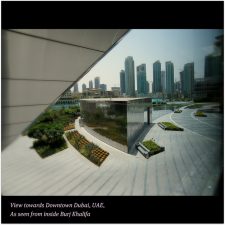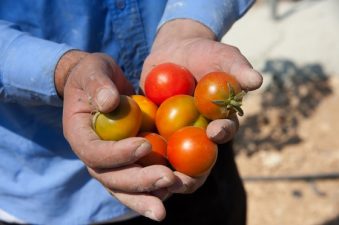 We speak to waste management expert Salman Zafar about the region’s mounting trash problem and why it’s outpacing all efforts to deal with it
We speak to waste management expert Salman Zafar about the region’s mounting trash problem and why it’s outpacing all efforts to deal with it
A recent report by the World Bank predicts that by 2025, city dwellers could produce as much as 2.2 billion tonnes of solid waste a year – that’s a 70% increase on the current 1.3 billion which is generated. It’s a scary thought to have to live in all that trash. However cities across the Middle East already appear to be living in mountains of trash with rubbish strewn across deserts in Gulf nations, on busy streets in Tunisia, in canals and open waterways in Egypt and in dangerous landfills in Kuwait.
“On the whole, MENA countries are slowly, but steadily, gearing up to meet the challenge posed by waste by investing heavily in [sold waste management] projects, sourcing new technologies and raising public awareness,” explains waste-expert Salman Zafar. “However the pace of progress is not matched by the increasing amount of waste generated across the region.” I caught up with Zafar to find out more and ask what the region can do to get a grip on its trash problems.
 Tell us a little about yourself, your expertise and the range of work you do.
Tell us a little about yourself, your expertise and the range of work you do.
I am a chemical engineer by education and have been working in the cleantech sector after completing my education in 2004. My core areas of expertise are waste management, waste-to-energy, renewable energy and sustainability. I am an entrepreneur, a consultant, a writer and a speaker. EcoMENA was launched to increase environmental awareness and encourage community participation in sustainable development initiatives in Middle East and North Africa. Apart from EcoMENA, I run two other cleantech advisory firms cum resource websites BioEnergy Consult and Cleantech Solutions. I am heavily involved in spreading mass awareness on renewable energy, waste management and resource conservation through my websites, blogs and projects.
What are the biggest problems of the region in terms of waste and trash creation?
Lavish lifestyle, ineffective legislations, infrastructural roadblocks, indifferent public attitude and lack of environmental awareness are the major factors responsible for growing waste management problem in the Middle East, especially GCC. High standards of living are contributing to more generation of waste which when coupled with lack of waste collection and disposal facilities have transformed ‘trash’ into a liability. Though Islam puts much stress on waste minimization, Arab countries are among the world’s highest per capita waste generators which is really unfortunate. Dumping of waste in open spaces, deserts and water bodies is a common sight across the region. Another critical issue is lack of awareness and public apathy towards waste reduction, source segregation and waste management.
What are the barriers holding back countries from taking action to deal with these problems?
Solid waste management in MENA countries is bogged down by deficiencies in waste management legislations and poor planning. Many countries lack legislative framework and regulations to deal with wastes. Insufficient funds, absence of strategic waste management plans, lack of coordination among stakeholders, shortage of skilled manpower and deficiencies in technical and operational decision-making are some of the hurdles experienced in implementing an integrated waste management strategy in MENA. In many countries waste management is the sole prerogative of state-owned companies and municipalities which discourages the participation of private companies and entrepreneurs.
What do the attitudes of the MENA region citizens to trash and rubbish say about their commitment to dealing with other environmental issues?
The general perception towards waste is that of indifference and apathy. Waste is treated as ‘waste’ rather than as a ‘resource’. There is an urgent need to increase public awareness about environmental issues, waste management practices and sustainable living. Public participation in community-level waste management initiatives is lacklustre mainly due to low level of environmental awareness and public education. Unfortunately none of the countries in the region have an effective source-segregation mechanism.
Are government policies, new technologies or shifts in attitudes the solution to the region’s trash problems?
A sustainable waste management system demands high degree of public participation, effective legislations, sufficient funds and modern waste management practices/technologies. The region can hope to improve waste management scenarios by implementing source-segregation, encouraging private sector participation, deploying recycling and waste-to-energy systems, and devising a strong legislative and institutional framework.
Are there any countries or projects that are leading the way in terms of efficient waste management?
In recent years, several countries, like Qatar and UAE, have established ambitious solid waste management projects but their efficacy is yet to be ascertained. On the whole, MENA countries are slowly, but steadily, gearing up to meet the challenge posed by waste management by investing heavily in such projects, sourcing new technologies and raising public awareness. However the pace of progress is not matched by the increasing amount of waste generated across the region. Sustainable waste management is a big challenge for policy-makers, urban planners and other stake-holders, and immediate steps are needed to tackle mountains of wastes accumulating in cities throughout MENA.
For more on the region’s trash problem see:
Kuwait’s Towering Trash Problem
Libya’s Post-Revolution Trash and Traffic Problems
Lebanon’s Trash Gets An Audience With The (B)IM Project Play
Heaping Urban Trash May Be More Serious Than Climate Change
Egypt’s Filthy Canals Are Breeding Disease & Discontent
Image of a slum in Downtown of Fez, Morocco via Shutterstock.com




trash in middle east